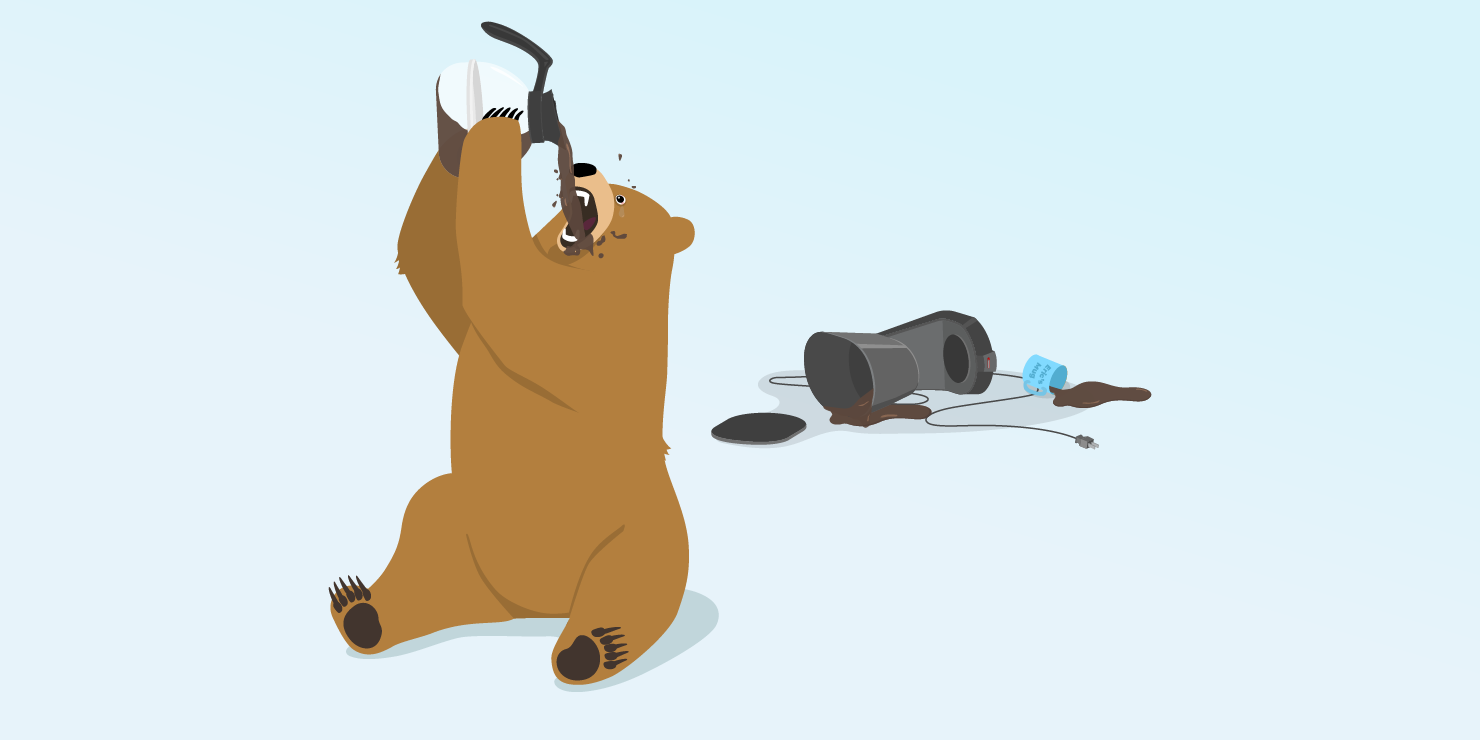Privacy Never Sleeps: You Should Always Use a VPN
11 minute read
The moment you go online you’re giving personal data away. Whether it’s your phone, a game console, or a connected speaker, someone, somewhere, is monitoring your connection. Knowing what data your device sends, and who has access to that information, is an important part of maintaining your online privacy. However, without the right tools you’re probably giving away a lot more information than you realize.
One of the ways people unintentionally give away their personal information is by turning their VPN off. A recent customer survey taught us that some people see VPN as a tool to use for specific tasks, like using public WiFi, or to view websites from home while traveling. Once they’re done their task, they turn off their VPN and go on with their day. Turning off your VPN reveals your real IP, your real physical location and what you’re doing online from that point forward.
At TunnelBear, we believe an “always-on” approach to online privacy is the best way to protect yourself. Keeping your Bear tunneling at all times helps protect your personal information from advertisers, ISP, data brokers, and anyone else trying to make money off your data. Let’s take a look at what a VPN actually protects you from, and why it’s important to keep your VPN on every time you go online.
Immediate benefits vs long term privacy solution
VPN technology provides important privacy and security protections for people, but they are sometimes used to circumvent copyright. While we believe an open internet benefits everyone, some content providers are introducing increasingly advanced measures to block VPN use on their services.
using your VPN as part of a long term security strategy is important for . . . securing your data
We know using a VPN as part of a long term security strategy is important for our customers, but we're dissapointed to hear that running into service blocks often results in customers turning off TunnelBear. Your VPN is a tool that helps fight censorship, secures your data and helps you take back your online privacy, but TunnelBear can't help you if it isn't running.
Protecting your information is important
Free WiFi is everywhere, hotels, airports, cafes, conferences, but we can’t always be sure the networks we connect to are trustworthy. Connecting to public WiFi means anyone sharing that network can see what you’re doing, and all they need is a few pieces of free software to do it.
If you're using public Wifi without encryption, it's possible for people to use Man in the middle attacks to see your search requests, services you've connected to, and even some plain text passwords for services that aren't using HTTPS.
By keeping your VPN on, you're protecting all of your browsing whether you're on private or public networks. People sharing your network, or monitoring it, can’t see what you’re doing, making it harder to steal your information, track you across sites or follow your activity.
Data is big business
Capturing, storing and analyzing data has become a booming business. Data brokers, the companies that collect and package data to sell, scour the internet for bits of seemingly unrelated data. As they analyze it and start to see patterns, they create user profiles to later sell. These user profiles can contain everything from your browser settings to your healthcare information, and are combined to create highly accurate pictures of who you are and how you live.
Once a company has created a profile and sold it, it's difficult to know where your information has gone, who has access to what personal information and what they're doing with it. A common response from people is, “I have nothing to hide, so what does it matter?”, but having your personal information floating around the internet leaves you vulnerable to all kinds of privacy violations and scams.
Having nothing to hide isn’t the same thing as exercising your right to privacy. Being a law abiding citizen doesn't mean you keep your curtains open when you change, your curtains stop strangers from looking in your windows. If you think you have "nothing to hide" online, think about always-on encryption like a curtain that prevents companies from spying on your private data as you browse.
Information collection matters
We mentioned in the last section that personal information in the wrong hands is a growing issue. New data gathering and processing techniques are creating new ways to discriminate. Your browsing data might seem harmless, but shockingly accurate profiles of people can be put together by combining data from different events, like if you left a ranking for a show on Netflix and someone compared it to your IMDB profile.
While exposing your movie preferences might be embarrassing, for marginalized communities, loss of personal information can mean limited access to proper healthcare, auto insurance, credit, and even voter polling stations.
The trail of private information we leave online has serious real world implications, and one of the easiest steps to protect that trail is keeping your VPN on.
Privacy is a Universal Human Right
The Universal Declaration of Human Rights, Article 12, states that, “No one shall be subjected to arbitrary interference with their privacy, family, home or correspondence. . .” Online, and in the real world, you have a reasonable expectation of privacy. Most connected devices, and websites, ignore that expectation suggesting that the internet is more like a public place where everyone can see you in the street.
Websites regularly use banners to state their cookie policy, but that doesn't make them compliant with privacy laws in different countries. Just because a company warns you about their privacy policies, doesn’t mean they're storing, using, or deleting your data correctly. Getting to know the online privacy laws in your area will help you understand privacy policies, so you can choose services that respect your data.
No one shall be subjected to arbitrary interference with their privacy, family, home or correspondence. . .
Protecting your personal information online isn’t just a matter of not being fed ads for cat-toting backpacks, or socks with your face on them, using a VPN to protect your browsing means blurring the connections between you and the data trail you’ve picked up during your browsing session. VPN aren’t always marketed as a tool to help protect people’s human rights, but that’s exactly what they’re doing.
Always on
The are a lot of reasons why you should keep your VPN on all the time, but most of them aren't immediately obvious. At the very least, keeping your VPN on is a simple step to taking your privacy back. The less unencrypted data you send from your device, the harder it is for companies to build profiles with your data. At a deeper level, VPN are helping protect your (often ignored) online rights to privacy and freedom from interference.
Adopting an “Always on” approach helps protect your data and gives you peace of mind knowing that your most personal moments stay your own. With an Unlimited TunnelBear plan, you’ll have unlimited data, so you can keep TunnelBear running all day. Now you can encrypt all of your browsing and dramatically reduce your loss of privacy.
Grizzly regards,


